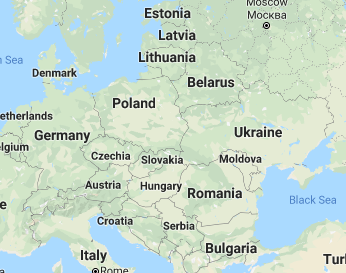This the third article in an an ongoing series. Two previous articles outlined Vietnam and Malaysia as alternatives to manufacturing and shipping from China. The Cargo Services team is providing background and information about countries and areas of the world that could provide alternate options for long-term supply chain cost management.
The idea of seeing Made in Poland on a garment label may sound far-fetched, but in the current global economic climate it could become a reality. Eastern European countries including Slovakia, Czech Republic and Poland are some of the fastest developing countries in the world. In fact, Poland was the fastest growing economy in post-crisis Europe, according to data of the International Monetary Fund.
As business leaders consider future options for manufacturing and shipping, Eastern Europe should be on the list. Workers are highly skilled and well educated. Yet the workforce remains cost competitive. And governments are investing in the future.
Horizon 2020 has the political backing of Europe’s leaders and the members of the European Parliament. It is the biggest ever European Union Research and Innovation program. Kicked off in 2014, the initiative has had over $88 billion in funding made available over seven years (2014 to 2020) with added private money invested. The goal is to ensure Europe produces world-class science, removes barriers to innovation and makes it easier for the public and private sectors to work together in delivering innovation. Easily stated, Europe wants to drive growth and create jobs.
Sectors included in the initiative include health, energy, digital, manufacturing, materials, aerospace, automotive, food and agriculture, security – plus social sciences, humanities, genomics, physics, nutrition, mathematics, economics, AI and more.
For companies in the United States looking for manufacturing partners there are benefits for manufacturing and transportation when working with Eastern European businesses.
- Labor Price. It is lower than the rest of Europe, which means costs for manufactured goods can be lower. According to Eurostat website the lowest wages in Europe in 2018 were in the Eastern bloc including Poland, Bulgaria, Latvia and Lithuania.
- Europe doesn’t have the current tariff difficulties that China is experiencing.
- These countries have established natural resource availability and infrastructures, and they have been in place for years.
- European Union. Being part of the EU means easy travel and movement of goods in relatively quick transit times from factories to ports. Think truck, barge and rail established and ready to move goods.
There are a few challenges to consider that could impact supply chains.
- Many of these countries are landlocked and transportation becomes trickier involving more modes, which could be more expensive. Typically transportation to North America requires arrival at northern EU ports, such as Bremerhaven, Antwerp or Rotterdam. Yet the cost of China tariffs could outweigh this challenge.
- While the workforce is educated and skilled and the EU invests in Horizon 2020, manufacturing quality and delivery is not yet proven in some countries. Yet they are ready to work and prove themselves.
Cargo Services has partners in each of these countries ready to tackle logistics requests and opportunities. We are actively traveling in the region to make sure our partners are able to handle the needs of our customers. If you’d like to learn more and begin conversations with our partners, contact your Cargo Services representative or call our office.

